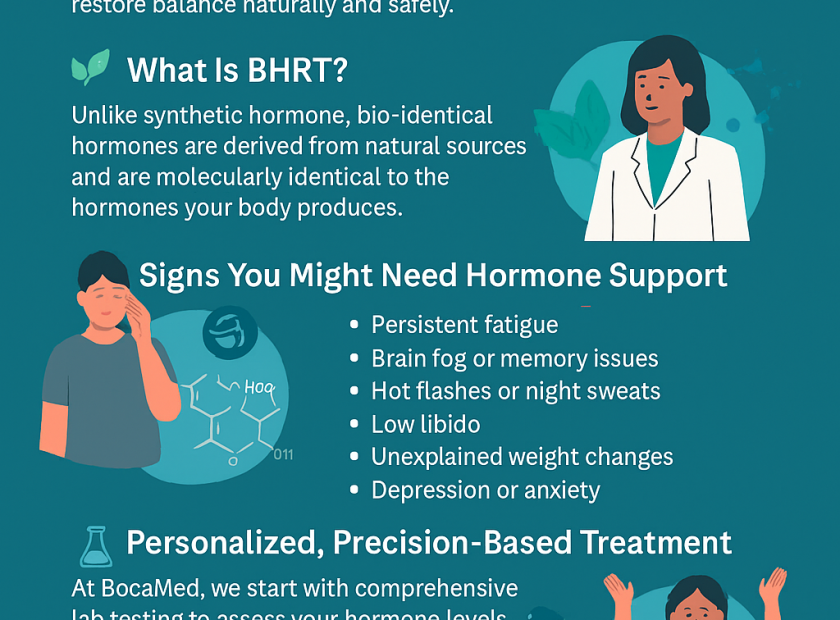Why Family Medicine is the Key to Longevity: Insights from Anti-Ageing and Functional Medicine Experts

In the quest for a long and fulfilling life, individuals often seek guidance from experts in anti-ageing and functional medicine. These professionals understand the importance of adopting a holistic approach to health, focusing not only on disease treatment but also on preventive measures and overall well-being. Family medicine, with its comprehensive and patient-centered approach, emerges as a vital component in the pursuit of longevity. In this article, we will delve into the reasons why family medicine is the key to longevity, drawing insights from anti-ageing and functional medicine experts.
The Role of Family Medicine in Promoting Longevity
Family medicine plays a crucial role in promoting longevity by addressing the diverse healthcare needs of individuals and families across all stages of life. Let’s explore the key aspects that make family medicine essential for a healthier and longer life.
1. Prevention is Better Than Cure: The Foundation of Family Medicine
When it comes to longevity, prevention is indeed better than cure. Family medicine practitioners emphasize preventive care and empower individuals to take charge of their health through regular check-ups, screenings, and lifestyle modifications. By identifying potential health risks at an early stage, family physicians can intervene promptly, mitigating the progression of diseases and promoting longevity.
2. Comprehensive Healthcare for All Ages
Family medicine encompasses healthcare services for individuals of all ages, from infants to the elderly. This specialization enables family physicians to provide personalized care and establish long-term relationships with their patients. By understanding their patients’ medical history, lifestyle factors, and genetic predispositions, family physicians can develop tailored treatment plans, focusing on preventive measures that promote longevity.
3. Holistic Approach to Well-being
A holistic approach to health is vital for promoting longevity, and family medicine excels in this aspect. Family physicians consider not only the physical health of their patients but also their mental, emotional, and social well-being. This comprehensive perspective allows for a more thorough assessment of health-related factors that may impact longevity, such as stress levels, lifestyle choices, and social support systems.
4. Continuity of Care and Disease Management
Family physicians provide continuity of care, which is instrumental in managing chronic conditions and promoting longevity. By developing long-term relationships with their patients, family physicians gain a deep understanding of their medical history, lifestyle habits, and treatment preferences. This knowledge enables them to optimize disease management strategies and ensure consistent follow-up care, resulting in better health outcomes and extended lifespans.
5. Health Education and Empowerment
An essential aspect of family medicine is health education and empowerment. Family physicians educate their patients about healthy lifestyle choices, disease prevention, and self-care strategies. By equipping individuals with knowledge and tools to make informed decisions about their health, family medicine empowers them to lead healthier lives, reducing the risk of chronic diseases and increasing longevity.
6. Multidisciplinary Collaboration
Family medicine promotes multidisciplinary collaboration, involving various healthcare professionals to address the diverse needs of patients. Family physicians work alongside specialists, therapists, nutritionists, and other experts to provide comprehensive care. This collaborative approach ensures that individuals receive the most appropriate and effective interventions for their health concerns, contributing to longevity.
FAQs about Family Medicine and Longevity
Let’s address some frequently asked questions about family medicine and its impact on longevity.
1. How does family medicine differ from other medical specialties?
Family medicine differs from other medical specialties in its focus on comprehensive healthcare for individuals of all ages. While specialists usually concentrate on specific organ systems or diseases, family physicians take a holistic approach, considering the overall well-being of the patient and providing continuity of care throughout their lifespan.
2. Can family medicine help prevent age-related diseases?
Yes, family medicine plays a crucial role in preventing age-related diseases. Through regular check-ups, screenings, and lifestyle counseling, family physicians can identify risk factors and intervene early to prevent or mitigate the progression of diseases commonly associated with ageing.
3. Is it necessary to have a family physician if I am generally healthy?
Having a family physician is beneficial even if you are generally healthy. Family physicians can provide preventive care, address any underlying health concerns, and guide you in maintaining a healthy lifestyle. They also offer a comprehensive approach to care, ensuring that any potential health issues are detected early.
4. How can family medicine promote healthy ageing?
Family medicine promotes healthy ageing by focusing on preventive care, disease management, and lifestyle modifications. Family physicians provide guidance on nutrition, exercise, stress management, and other factors that influence healthy ageing. They also screen for age-related conditions and provide appropriate interventions to enhance quality of life.
5. What can I expect during a visit to a family physician?
During a visit to a family physician, you can expect a comprehensive evaluation of your health. This may include discussing your medical history, performing physical examinations, ordering laboratory tests or screenings, and developing a personalized care plan based on your specific needs and goals.
6. How often should I see a family physician?
The frequency of visits to a family physician depends on your age, overall health, and any specific medical conditions you may have. In general, it is recommended to have an annual check-up, even if you are feeling well, to ensure preventive care and early detection of any potential health issues.
Conclusion
Family medicine is undeniably the key to longevity, offering a comprehensive and patient-centered approach to healthcare. By emphasizing preventive care, holistic well-being, continuity of care, and collaboration with other healthcare professionals, family physicians can help individuals lead healthier lives and age gracefully. Whether you are young or old, healthy or managing chronic conditions, family medicine can be your ally in the pursuit of longevity and a fulfilling life.








